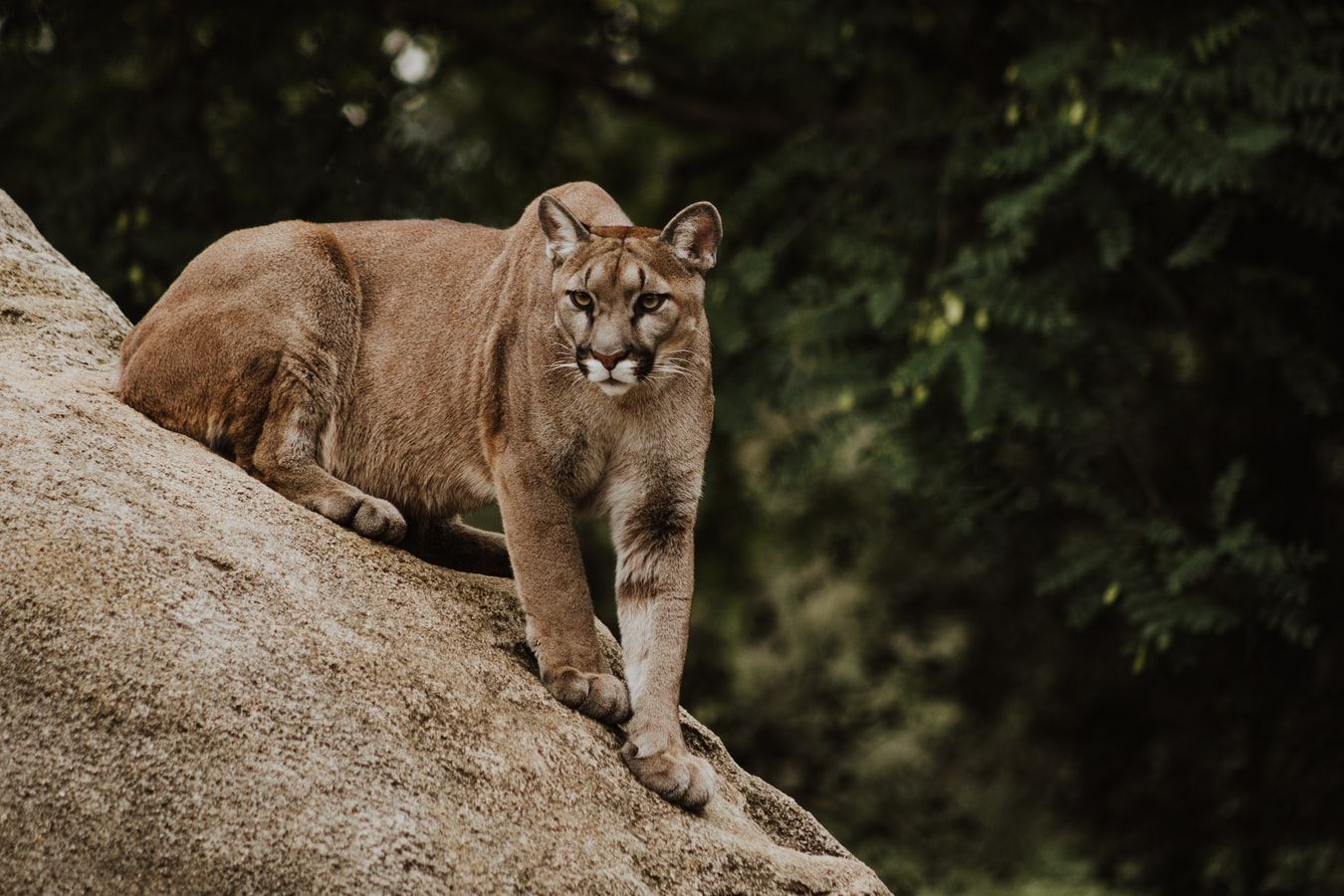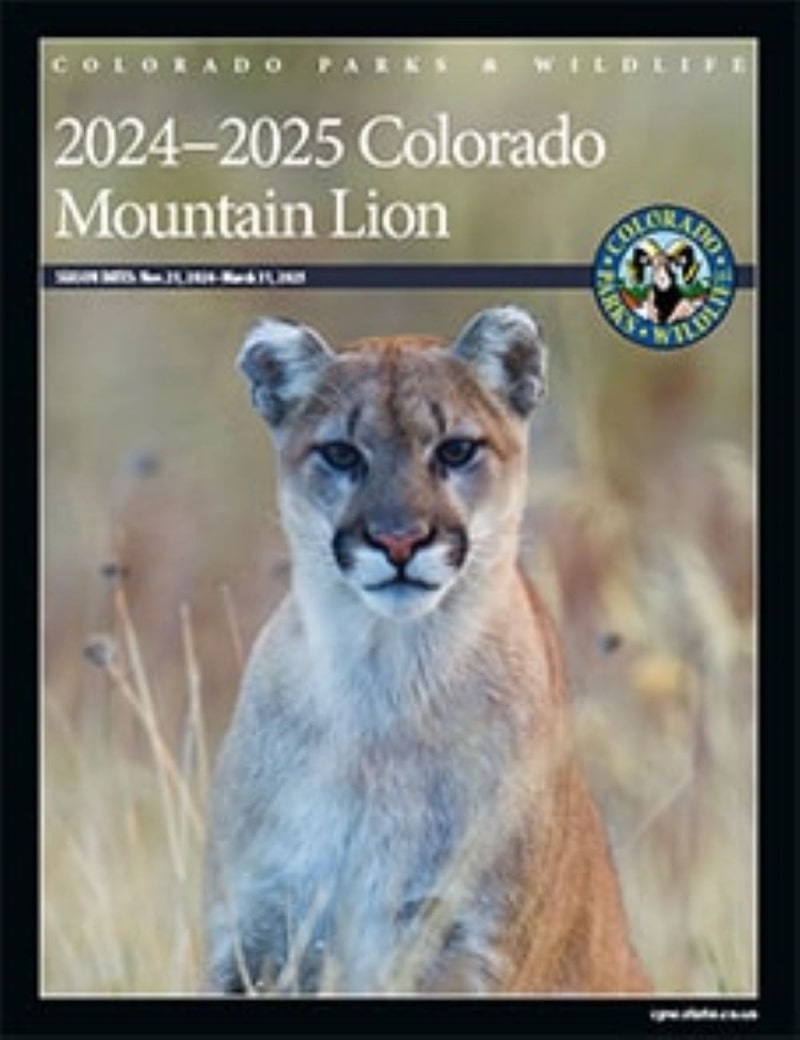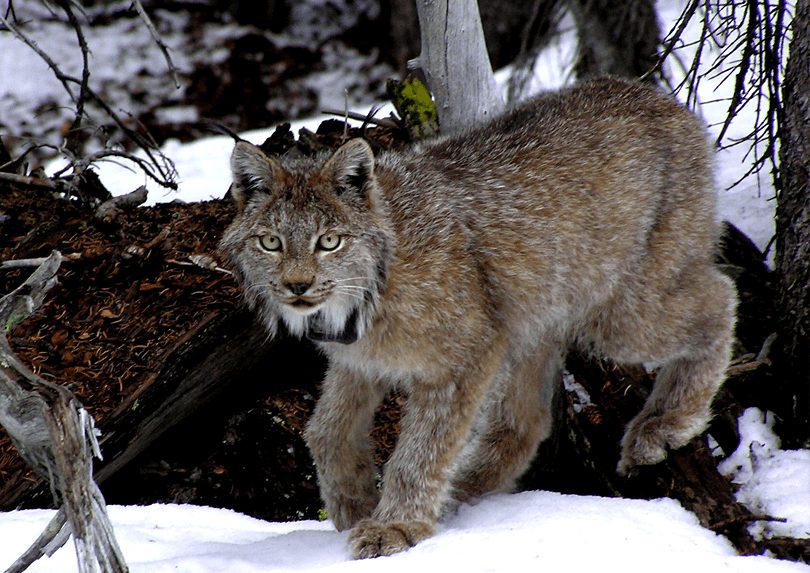
Initiative 91 will be on the ballot in November if 180,000 voter signatures are approved by the state of Colorado. Volunteer groups have been lobbying the public on the issue and have successfully collected more than the required 124,328 required by law. The initiative would prohibit the intentional killing and trapping of mountain lions, bobcats, and lynx, charging violators with a class 1 misdemeanor. Exceptions to the new law would be made for the defense of people, livestock, or property against depredating cats, along with included protection for vehicle collisions and CPW agents. The leading group behind the initiative, Cats Aren’t Trophies, says that “Trophy hunting mountain lions is unsporting, inhumane, and orphans kittens,” on its website. They also say that a ballot measure is the best way for Colorado residents to make their voices heard and move forward against big cat hunting.
Colorado Parks and Wildlife has managed the hunting and harvest of mountain lions in Colorado since 1975. This upcoming season’s harvest limit from CPW will be 674 cats, which is on par with recent years past. The agency estimates that there are anywhere between 3,800 and 4,400 mountain lions in the state, not including kittens. Extensive management of the species is carefully calculated and performed by professionals within the government agency. The use of harvest limits and management plans is vital to maintaining a healthy population of cats while protecting human welfare, according to the CPW. Electronic calls for cats were recently prohibited in all hunting units in Colorado. The one-month April season was also suspended this year in all units; the season is historically only open in units that require more management.

The CPW also removes around 60 problem mountain lions a year, both with agents and through landowners or hunters. This means that as many as 60 cats per year pose a threat to the public by attacking livestock, pets, or people and frequenting trails or towns. California banned the hunting of mountain lions in 1990 and instead turned to a system issuing permits only to victims of these depredating lions. Residents must contact the California Department of Fish and Wildlife and go through a lengthy process; around 200-300 depredation permits are issued with an average of 100 successful hunts per year. California also banned the hunting of bobcats in 2020.
Opponents of Initiative 91 cite state revenue loss, infringement against hunters, and trust in the CPW. The leading group in opposition to the ban, Coloradans for Responsible Wildlife Management, has also made its claims on its website and invested in influencing the public. This pro-hunting organization is mostly concerned with broader attacks on hunters, but others have noted the economic implications. At $500 for non-residents and $60 for resident permits, the initiative would cause an expected loss of $377,000 of projected income that would go back into conservation and management. It is also worth noting that while additional income may be generated from the prosecution of future mountain lion poachers, additional expenses associated with protecting the species from poachers would be huge. Forgoing the harvest system, reorganizing the CPW’s management of the species, and putting this issue into the hands of the voters may be counterintuitive, according to opposition groups. While some experts do not support trophy hunting and harvest limits, CPW science has maintained healthy lion populations and peaceful interactions for decades.
Another controversial wildlife management decision will likely be up to voters in Colorado this election cycle. Five wolves from Oregon were reintroduced to Colorado when Initiative 114 was narrowly passed by voters in 2020. The response has been controversial with wolves attacking livestock, being killed in various ways, and crossing east of the Continental Divide. Mountain lions have open game seasons in most states in the West, including Nevada, Montana, Wyoming, Oregon, New Mexico, Idaho, and recently, Utah. Lynx have been federally and state-protected in Colorado since the Endangered Species Act was passed in 1973.
Colorado Parks and Wildlife takes no position for or against proposed initiatives such as Initiative 91 and will diligently implement all laws duly passed by the legislature and the Governor or by the voters.
